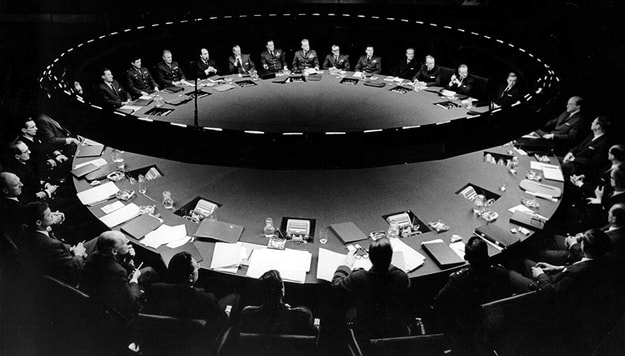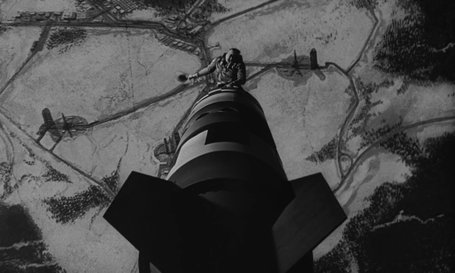Written by John Edward Betancourt As I begin to wind down my brief retrospective on Stanley Kubrick’s work in cinema, I have to admit to all of you, that I struggled with which film to close the whole thing out with. Because there are so many wonderful movies attached to this man’s powerful genius and taking the chronological route all the way through would allow for some of his other classics to slip through the cracks and well, this retrospective is brief because I really wanted to celebrate his finest works, the ones filed with powerful meaning and since I was a touch lost, I reached out to another Kubrick fan and writer on the site, Scott Murray. Because I really wanted this to pay proper respect to Kubrick and sometimes bouncing ideas off of another fan and writer helps and in talking with Scott it finally hit me. The best way to begin to wind down this ride through Stanley’s mind would be to look not only at the end of his career, but also the beginning. But not the true beginning, not that first director’s credit. No, in order to properly understand the man we have to truly dig into what the artist wanted to accomplish, what he wanted his career to stand for and well, it’s become inherently obvious to me as I’ve re-watched his work that Kubrick wanted to understand the most complex creature on the planet, the one that is capable of great beauty and incredible cruelty; man. And it just so happens his exploration of us began in 1964 with the film, Dr. Strangelove or: How I Learned to Stop Worrying and Love the Bomb. For this magnificent satire, wasted no time in looking at the world as it was in the 1960’s. It was…unsure of itself and full of fear over the possibility that the United States and the Soviet Union would go to nuclear war, especially after the Cuban Missile Crisis and well, the first thing you notice about this film is that Stanley does a fine job of dismissing our fears by way of quirky characters and equally as quirky moments and in a roundabout sort of way, it’s almost as if the movie is reminding us to live each moment to the fullest because we simply never know if tomorrow is the end, and if the end does come, there’s quite frankly, little we can do to prevent it.  But perhaps what matters more is that Kubrick was also prophetic in many ways when it comes to this film. For many of the satiric themes that Stanley tackled in this film have either managed to come to life in modern day or they still persist. Case in point, the bravado and machismo present from the war room is still around in this day and age, as is the ‘us vs. them’ mentality, which unfortunately has internalized here in the United States and sadly, the whole aspect of conspiracy theorists causing trouble for everyday people in the film has become reality as well in our world with the advent of the Anti-Vax movement amongst plenty of other off the wall notions… However, while all of that is fascinating and chilling in its own right, what fascinates me more, is the sheer fact that Kubrick wasn’t subtle in his commentary in the slightest and while that was likely part of the plan since this movie is pretty wild in its own right, I think it was the easiest way for Stanley to begin his exploration of mankind in the simplest way imaginable. For in future works he would be far more subtle when it comes to his thoughts on humanity and the final motion picture on his resumé is perhaps the finest example of this since Eyes Wide Shut was quite the low key, yet powerful affair and a film that we will visit another day since it will serve as the grand finale to this retrospective. But in the meantime, this is still a film to celebrate from Stanley’s storied career and once one steps away from the commentary and the parallels to our modern world, we are left with quite the entertaining story, one that features some powerhouse and memorable performances and some equally as memorable moments because Slim Pickens riding the bomb all the way down to its target is about as iconic as it gets in cinema. However, I am a more of fan of how this movie vaulted Kubrick into a whole new level of filmmaking, the kind that left us pondering for decades over the meaning of his movies and well, it was quite cool to revisit the genesis of his special brand of commentary.
0 Comments
Leave a Reply. |
Archives
January 2025
|
|
© 2012-2025, Nerds That Geek LLC.
All Rights Reserved. |
uWeb Hosting by FatCow


 RSS Feed
RSS Feed